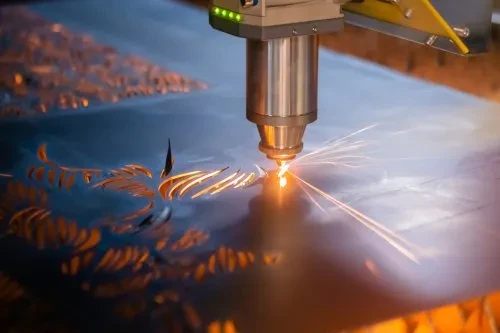Ошибка формата электронной почты
emailCannotEmpty
emailDoesExist
pwdLetterLimtTip
inconsistentPwd
pwdLetterLimtTip
inconsistentPwd

Новости
Other Milling Machine Operations You Should Know
In the previous blog, we mainly covered common operations. In this article we mainly focus on other milling machine operations.
In addition to the above operations, milling machines can be used to perform other specialized milling and machining operations. Examples of other types of milling operations available include:

Step Milling
Step milling refers to a milling operation in which a machine tool machines two or more parallel workpiece surfaces in a single cut. The process uses two cutters on the same machine spindle, arranged so that the cutters are on either side of the workpiece and can mill both sides simultaneously.
Combined milling
Combined milling is a milling operation performed with two or more tools (usually of different sizes, shapes or widths) on the same machine arbor. Each cutter can perform the same cutting operation at the same time, or different cutting operations at the same time, allowing more complex parts to be produced in shorter production times.
Contour milling
Contour milling is where a machine tool creates a cutting path on a workpiece along a vertical or inclined surface. The process uses profile milling equipment and cutting tools, which can be parallel or perpendicular to the workpiece surface.
Gear Cutting
Gear cutting is a milling operation that uses an involute gear cutter to create gear teeth. These cutters are a type of profile milling cutter and are available in a variety of shapes and pitch sizes depending on the number of teeth required for a particular gear design. In this process, special turning tool bits can also be used to produce gear teeth.
Other Machining Processes
Since milling machines support the use of other machine tools than milling tools, they can be used for machining processes other than milling, such as drilling, boring, reaming, and tapping.
Like most CNC machining processes, the CNC milling process uses CAD software to generate the initial part design and CAM software to generate the CNC program that provides the machining instructions to produce the part. The CNC program is then loaded onto the CNC machine of choice to initiate and execute the milling process.
Milling Machine Precautions
Generally, milling machines are divided into horizontal and vertical machine configurations and are differentiated by the number of axes of motion.
On a vertical milling machine, the machine spindle is vertically oriented, while in a horizontal orientation the milling machine spindle is positioned horizontally. Horizontal machines also incorporate spindles during milling for additional support and stability, as well as the ability to support a wide variety of cutting tools, such as in wheel and straddle milling. The control of both vertical and horizontal milling machines depends on the type of machine used. For example, some machines can raise and lower the spindle and move the table laterally, while other machines have a fixed spindle and table that can move horizontally, vertically, and rotationally. When choosing vertical and horizontal milling machines, manufacturers and shops must consider the requirements of the milling application, such as the number of surfaces that need to be milled and the size and shape of the part. For example, heavy workpieces are better suited for horizontal milling operations, while sinker applications are better suited for vertical milling operations. Auxiliary equipment is also available which can retrofit vertical or horizontal machines to support the opposite process.
Conclusion
For more information about best 5 axis milling machine,cnc foam milling machine,z axis milling machine, we are glad to answer for you.

